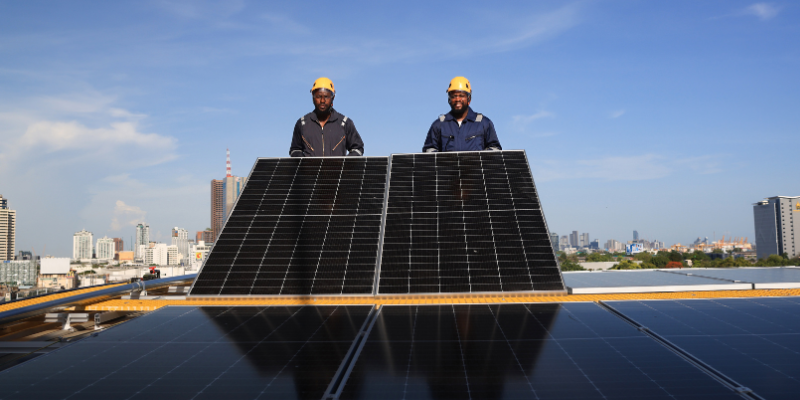Exploring Global Job Creation in Renewable Energy: Findings from the 2024 IRENA Report

The 2024 edition of IRENA’s Renewable Energy and Jobs report, developed in collaboration with the International Labour Organization (ILO), provides a comprehensive assessment of global employment across renewable energy sectors. It quantifies current job numbers, delves into various renewable technologies, and highlights employment trends within key countries. The report underscores that renewable energy expansion does more than diversify the world’s energy sources—it generates jobs, strengthens economies, and enhances overall well-being.
According to the report, renewable energy jobs worldwide rose to 16.2 million in 2023, marking a substantial increase from 13.7 million in 2022. This 18% growth in the renewable energy production workforce reflects the sector's strong momentum. China alone accounts for 7.4 million jobs, nearly 46% of the global total, followed by the European Union with 1.8 million jobs, Brazil with 1.6 million, and just over 1 million jobs each in the United States and India.
The solar PV sector remains the largest job generator in renewable energy, employing 7.1 million people, which constitutes 44% of the global renewable workforce. This sector saw a surge of 2.2 million jobs in 2023, with China leading the charge at 4.6 million jobs and the EU trailing with 720,000 positions.
In the biofuels sector, employment reached 2.8 million, primarily within the agricultural supply chain, which includes significant seasonal and part-time work. Brazil leads with 994,000 biofuel jobs, followed by Indonesia with nearly 799,000.
The hydropower sector, while significant, saw a decline of 4%, reaching 2.3 million jobs in 2023. This reduction reflects a slowdown in new installations globally.
Wind energy employs around 1.5 million people, with China accounting for nearly half of these jobs at 745,000. Europe, while still a technological leader, supports 316,300 wind jobs.
Additional renewable sectors further contribute to employment, including solid biomass with 765,000 jobs, solar heating and cooling with 681,000, heat pumps with 375,000, biogas with 316,000, geothermal energy with 160,000, concentrated solar power with 118,000, and municipal and industrial waste-to-energy with 26,000 jobs.
The report emphasizes the critical importance of a skilled workforce for a successful energy transition, especially for young people. Education and training are pivotal not only for individual employability but also as strategic tools to achieve climate objectives and promote an inclusive, equitable transition. Skills development and lifelong learning are essential to meet these ambitious goals.
